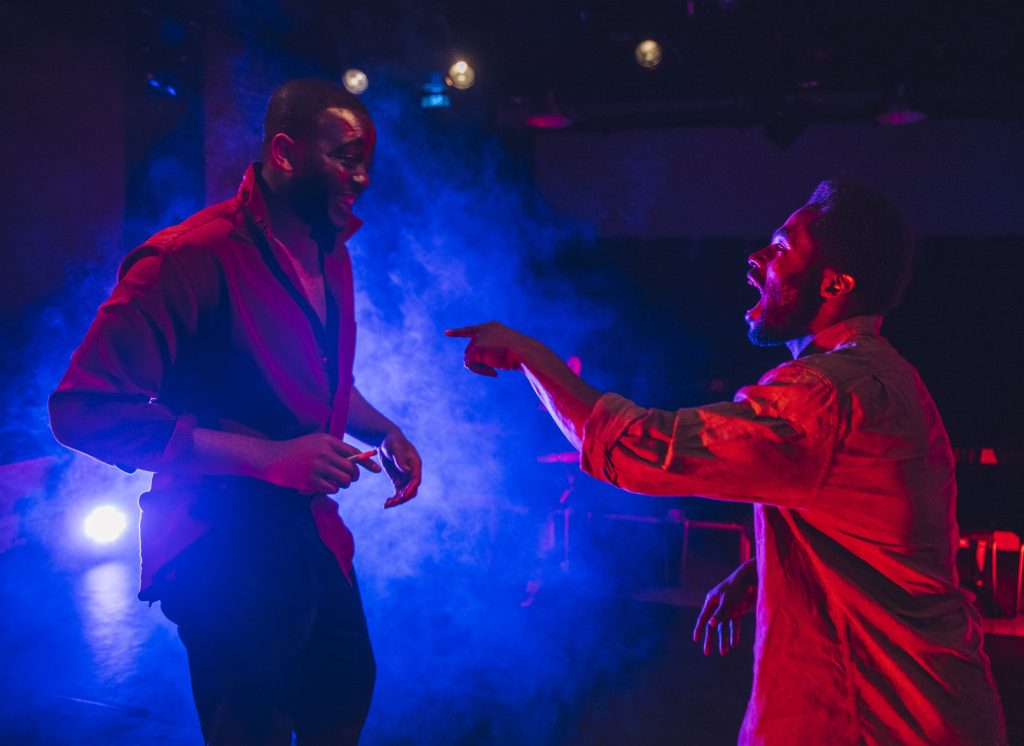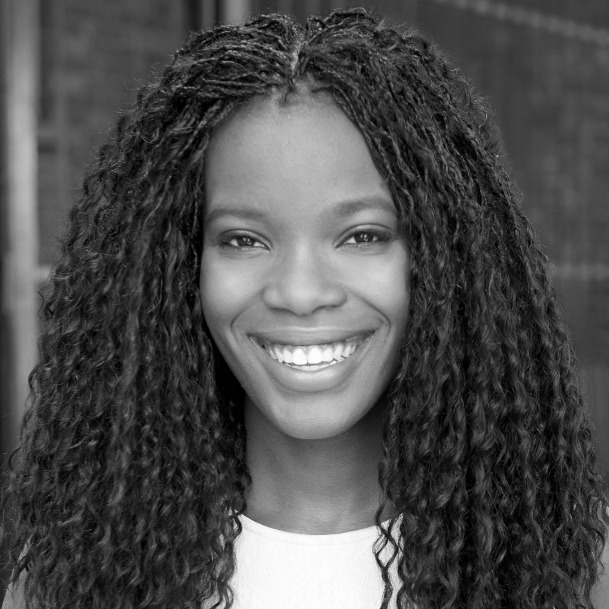The Disciple, the Son, and the Story: A Conversation with Leighton Alexander Williams
Sybrina Fulton stood stoic and resilient in front of a news camera as she bit her tongue, wanting nothing more than to bury her son, Trayvon Martin. Fulton’s image lodged in the heart of director and theatre creator Leighton Alexander Williams. He remembered the image of Henrietta Iscariot, the mother of Judas, burying her son against the backdrop of public opinion. These images of grieving mothers resonated deeply with Leighton. Their sons had become pawns within the criminal justice system. The tragedy of mourning one’s child amidst a whirlwind of controversy and accusations became a catalyst for BDB Productions’ Judas Noir.
Judas Noir is an adaptation of Stephen Adly Guirgis’ play The Last Days of Judas Iscariot. The story follows the court trial of Jesus’ infamous disciple, Judas Iscariot, as his fate in the afterlife hangs in the balance. Interwoven with the case are parallels between the persecution of Jewish people, in the Biblical days, and the execution of Black men, in the present day, at the hands of law enforcement. Creating and sharing stories like Judas Noir is at the core of BDB’s mission.
BDB is the Big Dreamers Brotherhood—a production company founded by seven film and theatre artists of various disciplines. Their objective is to provide great sources of entertainment through the telling of personalized stories that are progressive and relevant to issues we face in society today. At the helm of Judas Noir, as the director and playwright, is company member Leighton Alexander Williams; he also takes on the role of Satan in the production. Leighton told me on the phone how he was bit by the acting bug in the second grade. He had one line in the school musical. Another parent had congratulated his mother on Leighton’s performance. Leighton recalled the immense pride on her face that day.

Photo of Adrian Walters by Cesar Ghisilieri
Leighton had seen Adly Guirgis’ play, The Last Days of Judas Iscariot, while he was finishing up his studies at York University. And as he put it, he was “shooketh”. Growing up in a religious household, the story of Judas was familiar. The play’s perspective gave him insight into the narrative in a completely new way.
As Leighton explained to me how Judas Noir came to be, the excitement in his voice was palpable. He broke down the parallels that jumped out at him between Judas’ life and victims of police brutality. And it was with that same fervour that Leighton had messaged Adly Guirgis via Twitter to share his idea of adapting the text. “[Adly Gurgis] gave me permission,” Leighton said, almost reliving the moment again, “and he told me to go further, to use his play as a canvas for the Black voice and exploration.” And that is exactly what Leighton and the rest of the BDB ensemble have done.
Trapped in purgatory, the audience is taken on a journey through the heart, mind, and soul of Judas Iscariot, and is presented with the realities of the persecution of a young Black man. But as well, we see the effect on those who love him—Henrietta Iscariot, like Sybrina Fulton or Mamie Till, is a mother who has wept infinite tears for her lost son. And on those in power, or seeking power, who have something to gain by their death.
Judas Noir is Black expression amplified. Moments from their dress rehearsal left me in awe. Leighton laughed as I raved to him about my favourite scene, “It’s magical, to watch all of you on stage moving in sync and just having the time of your life. You can just tell it’s everyone’s favourite part of the show.” Beyond what was happening on stage, there were many distinct moments of community amongst those of us in the audience. The demographic at the dress rehearsal was mostly people of colour, who were predominantly Black. Leighton admits to me that the experience with a majority Black audience is different—we get the inside jokes, we respond audibly, we understand the pain personally. He adds, “But with a majority non-Black audience, it doesn’t fall on deaf ears. They were open and listening to what we had to say.”
Either way, the ambience in the room is electric and filled with visceral and honest reactions to the story unfolding before them. Black bodies, Black joy, Black sorrow, dance, heart, natural hair, free and celebrated—right there for all to see at Crow’s Theatre. Though Judas Noir was independently produced by BDB at Tarragon in 2017, with the backing of Obsidian Theatre this remount has the opportunity to reach a wider audience.

Photo of Derick Agyemang, Chelsea Russell, Leighton Alexander Williams and Alicia Richardson by Cesar Ghisilieri
For years, Philip Akin and Obsidian Theatre have fostered a strong mentorship program with young Black artists. In fact, I have yet to meet a Black theatre school graduate who has come through Toronto, even for a day, and hasn’t at least had a coffee or conversation with Philip. This level of investment in young artists is what supported Leighton on his journey as an actor, writer, and now a director bringing Judas Noir to life. Obsidian opened its arms to Leighton and BDB, and Stephen Adly Guirgis handed over his play to be a springboard for another’s creativity—this is the way that our community emboldens and encourages the next generation of artists. This is how we create and maintain a legacy of inspiration.
With an all Black cast and production support from Obsidian Theatre, it might be easy to categorize this play as ‘just another Black show.’ And with conversations about diversity being at the forefront of our industry, it’s even easier to put our work in a box. But for Leighton and his team, it’s far more than that. “We’re living in a time where we were seeing ourselves being killed on social media,” Leighton says frankly, “this is not just a hot topic, it has to mean something.” And this production is for all audiences, regardless of skin colour. “By being specific, we unlock the universal,” Leighton explains “and when it’s universal, then even people who don’t look like us might be opened and moved emotionally.” What’s more universal than a mother’s undying devotion to her son?

Photo of Leighton Alexander Williams by Cesar Ghisilieri
Judas Noir does not shy away from the truth. It unearths the things we’d prefer to sweep under the rug and brings them into the light. It deals with Black themes and it has a Black cast, but is not solely for a Black audience. Leighton’s experience attending theatre—like my own—is that the majority of any given show’s audience is often white. All the more reason why Leighton says “a play about black politics doesn’t need to be seen by black people, because we get it. It should be seen by white audiences.” It’s about empathy, not skin colour.
What began as a seed of inspiration, grew after seeing a play in his university days, rooted while bearing witness to the grief of a mother mourning her child, and transformed into this play. Judas Noir shares a fragment of the Black experience, for all. Rather than let his play or his artistic journey be placed in a box, Leighton reminded me of one of the fundamentals of being a creator: if we tell the truth, the work resonates.










Comments